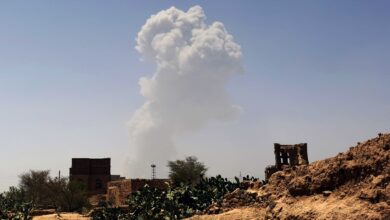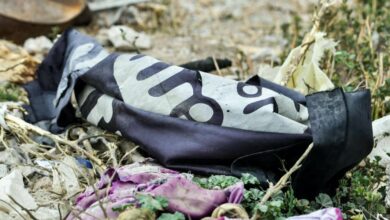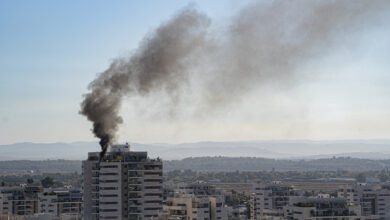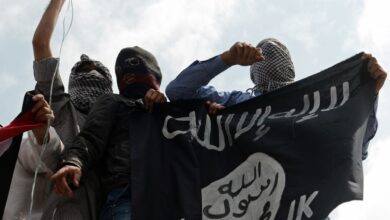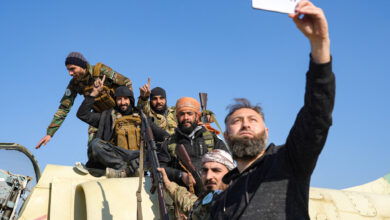UK PM May pledges more counter-terror support during visit to Iraq
UK to spend £10 million over three years to counter ISIS foreign fighter threat, develop border infrastructure, watch-lists and biometric data
British Prime Minister Theresa May pledged more counter-terrorism and humanitarian support for Iraq during a secret visit to the country on Wednesday, November 29.
May travelled from Jordan in an RAF Hercules to Taji military base near Baghdad where she met British troops in the first U.K. prime ministerial visit to Iraq since 2008.
Speaking after a meeting with Iraqi Prime Minister Haider al-Abadi, May said the U.K. would “continue to stand by Iraq as the last remnants of Daesh’s so-called Caliphate are liberated,” adding that Britain will be a “fully committed security partner” for as long as Iraq wants it to be.
May said the U.K. will spend £10 million over the next three years to help strengthen Iraqi counter-terrorism capabilities, and that Britain will work with “partners across the region” to deal with the threat posed by foreign fighters fleeing as Daesh is squeezed out of its physical caliphate.”
“We do need to ensure that we address the possibility of individuals from Daesh trying to set up elsewhere, and that is about ensuring there are no unstable areas where they can set up,” May told Sky News.
According to a U.K. government news release, this will mean more British personnel working with Iraqi counter-terrorism agencies and “deploying law enforcement resources to develop effective judicial pathways,” allowing them to find and respond to terrorist threats against Iraq and the U.K.
The U.K. will “work with partners across the region to develop border infrastructure, watch-lists and biometric capabilities, to counter foreign fighter dispersal,” the release said, to help ensure foreign fighters are identified, and stopped, and to “manage the return of women and children.”
The Prime Minister today became the first major foreign leader to visit Iraq since the fall of Mosul, where she congratulated British, Coalition and Iraqi Troops on the success of the counter Daesh campaign. pic.twitter.com/bf4WDrLS1j
— UK Prime Minister (@10DowningStreet) November 29, 2017
According to the release, May also said that the U.K. will continue to provide officer training – including at U.K. Military Colleges and the Defence Academy – and that British training teams will continue to develop Iraqi trainers in areas such as countering Improvised Explosive Devices, combat medicine, military planning, logistics, and force protection.
May also said the U.K. will provide “up to £30 million to support stabilisation, reconciliation and reform in Iraq,” and at least £20 million next year in humanitarian assistance, to help provide access to water, food, and healthcare.
May to discuss ‘concerns’ on Yemen with Saudi Crown Prince
May left to Iraq to travel to Saudi Arabia, where she was due to meet Crown Prince Mohammed bin Salman. Talks between the two will focus on Yemen.
Speaking in Iraq, May said she planned to “give a very clear message” that Hodeida port must be reopened.
“I am very concerned about the humanitarian crisis that has developed in Yemen, particularly most recently,” she told BBC News. “That is why one strong message I will be giving to Saudi Arabia tonight is that we want to see Hodeidah port opened for humanitarian and commercial access, that is important.”



